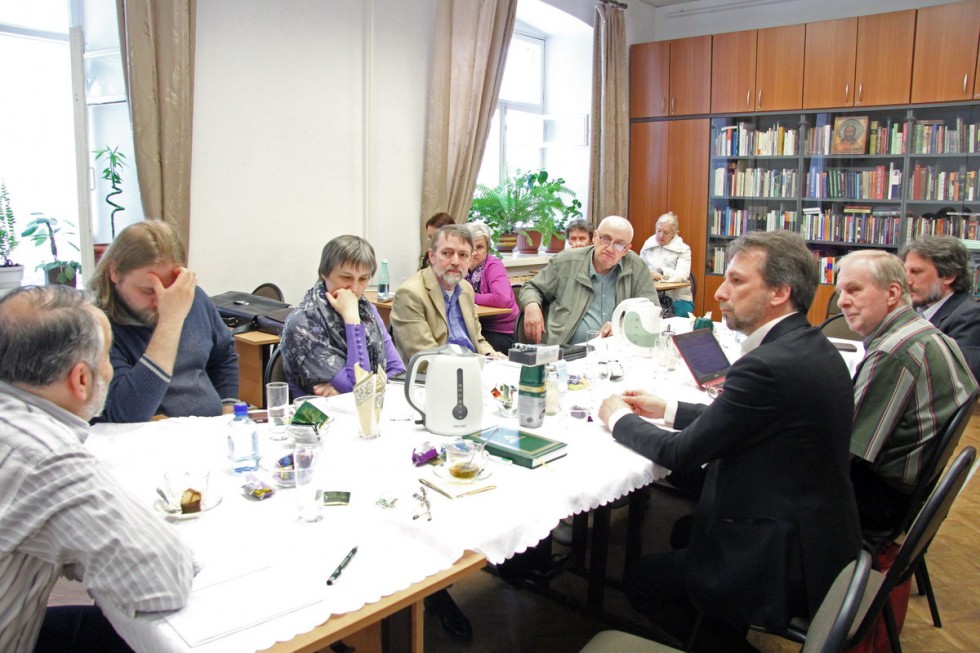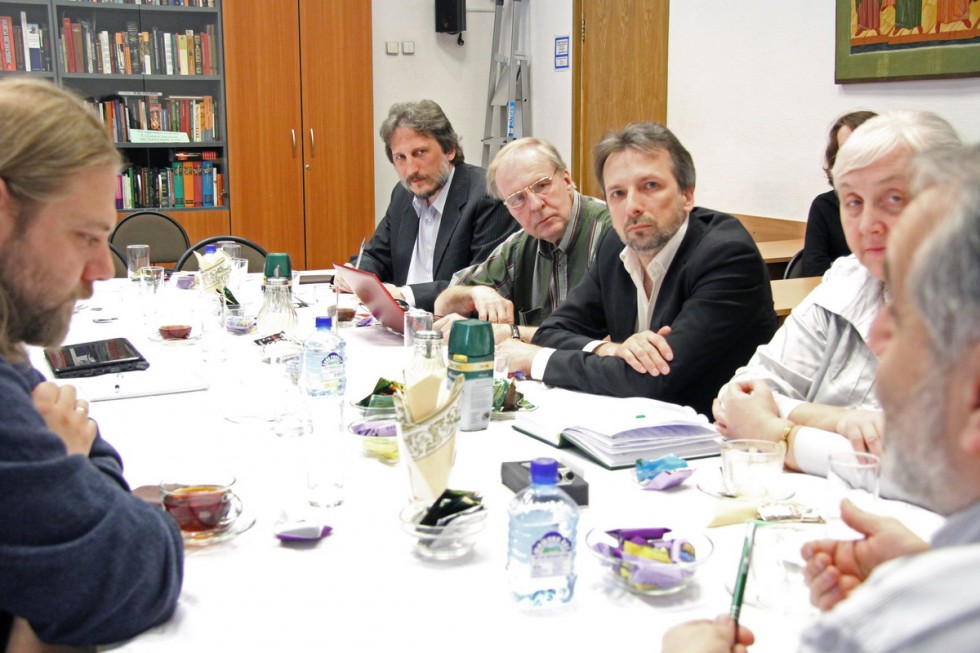Synergy in Theology of St Gregory Palamas
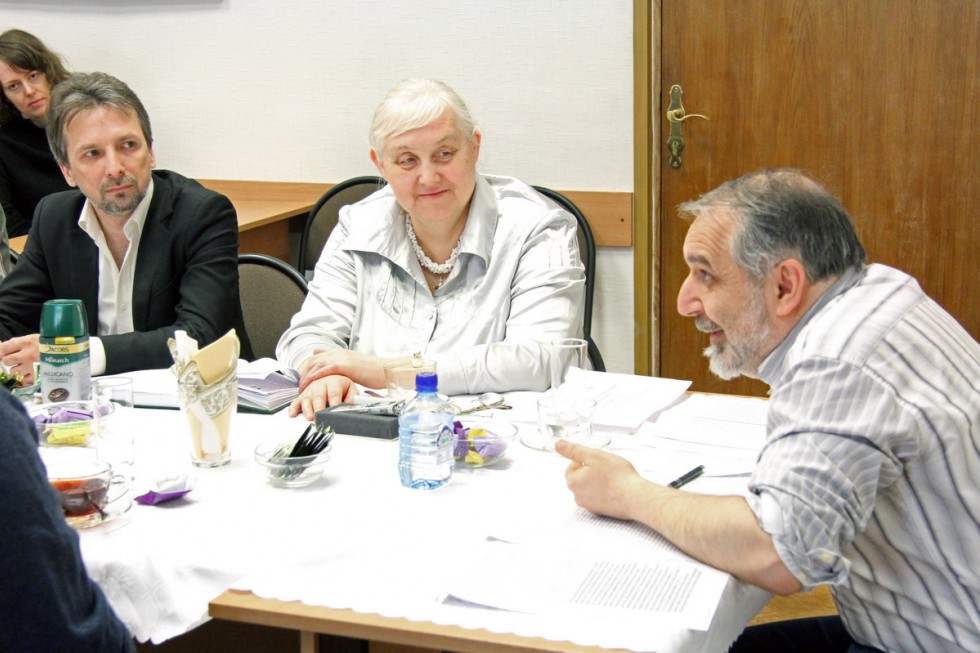
Margarita Shilkina, PhD in Philosophy, Head of the Department of Religious Studies at St Philaret’s Institute; Sergey Shcherbak, expert on Buddhism and new religious movements; David Gzgzyan, PhD in Philology, Head of the Department of Theology Studies and Liturgics at St Philaret’s InstituteEnter caption here
The discussion was attended by representatives of the Orthodox and Catholic churches. This conference session brought together heads of the Departments of Religious Studies at St John’s Russian Orthodox University and St Philaret’s Institute Ivan Negreyev and Margarita Shilkina; Alexey Zhuravsky, specialist on Islam (St Philaret’s Institute/Russian State University for the Humanities); Andrey Ignatiyev, sociologist of religion (Russian State University for the Humanities/St Philaret’s Institute); Boris Voskresenky, psychiatrist (St Philaret’s Institute/Russian State Medical University/Moscow State University of Psychology and Education); Sergey Shcherbak, specialist on Buddhism (St Philaret’s Institute); Yulia Balakshina, PhD in Philology (St Philaret’s Institute/Herzen State Pedagogical University of Russia); Igor Korpusov, specialist in geography of culture and religion (Tver State University).
David Gzgzyan, head of the Department of Theology Studies and Liturgics at St Philaret’s Institute, presented a paper called ‘Peculiarities of the Christian Interpretation of Synergy in the Palamite tradition’ followed by a panel discussion.
Hallmark of Orthodoxy
The term ‘synergy’ is the hallmark of the Eastern Christianity. However, modern Orthodox Christians have a rather dim idea of their own teaching about synergy. Eastern Christians are proud of their tradition and often use it as a shield in theological controversy with the Western Church. Besides sketchy notions, the dialogue stumbles over the difference in languages, since the two traditions have shaped different ways to speak about God.
The discursive and scientese language of Barlaam of Calabria, bishop of the Roman Catholic Church, inherited Aristotle’s tradition and terminology. St Gregory Palamas’s texts attest to a certain experience rather than represent a rigorous statement of a theological theory. His language is full of metaphors and images. It is poetry rather than science.
But what this experience of synergy is? How is it possible a co-working between a created — and furthermore fallen — man and the incomprehensible God the Creator? In St Gregory Palamas’s theology synergy is associated with the teaching about uncreated divine energies through which God is present and active in the world. Through these divine energies man can contemplate God, feel his presence and even become like him. But St Gregory Palamas’s texts do not specify what features a divinised person obtain.
The concept of theosis is found not only in Christianity. For example, the Neo-Platonic tradition speaks of theurgy: by certain practices a human soul can unite in ecstasis with the Absolute. God in Abrahamic religions differs from the Absolute by that he does not remain indifferent to man. God seems to really care.
Synergy basically means that when regarding man and his freedom, all God’s efforts are also put at stake. Man’s participation makes them somehow more ‘effective’. What if a person refuses to take part in God’s plan? Does God in Christianity suffer losses?
Do rack your brains!
There are episodes in the Bible that are very difficult to approach with a question ‘what if’. What if Mary had not wanted to accept God’s word from Archangel Gabriel? In every religion there are spheres labeled as ‘mystery’. They seem to say: ‘There are limits beyond which you cannot go. Do not try to understand, do not even rack your brains!’
But why did Mary answer the way Luke reports? Could she have answered differently? Such questions bring us to an intellectual nonplus. If one answers: ‘she could not have’, what was her freedom then? But if you say: ‘she could have because she was free’, we still get no closer to understanding the mystery of synergy between God and man.
The most difficult thing is to understand what kind of effort God expects of a man. Freedom is not a choice between two options but the determination to hear what God proposes. We do not know what question Gabriel had asked Mary. And the mystery is not that she said yes but that she was able to understand the question.
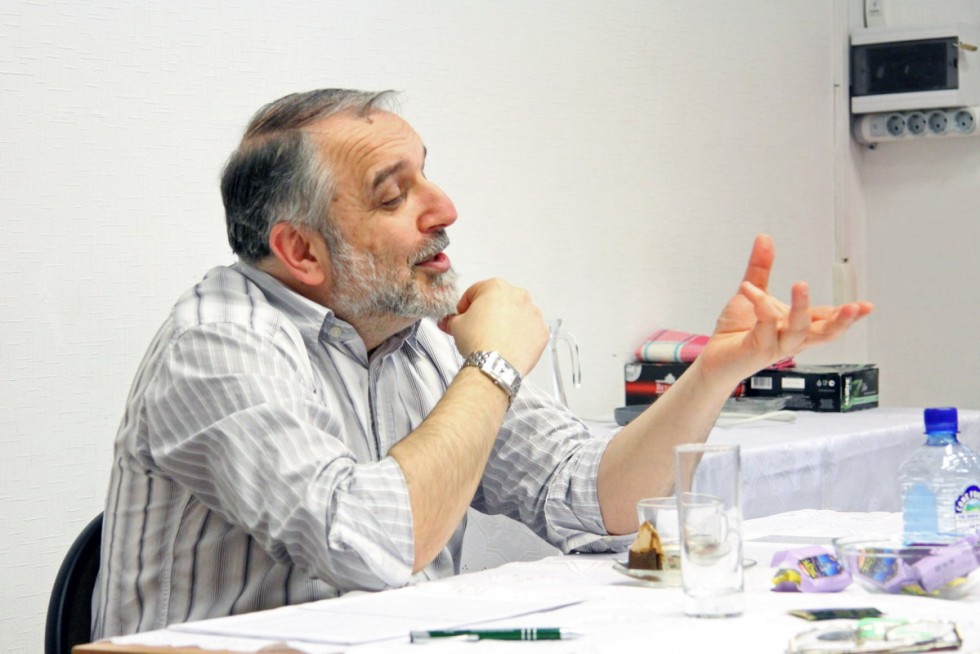
Seminar moderator David Gzgzyan
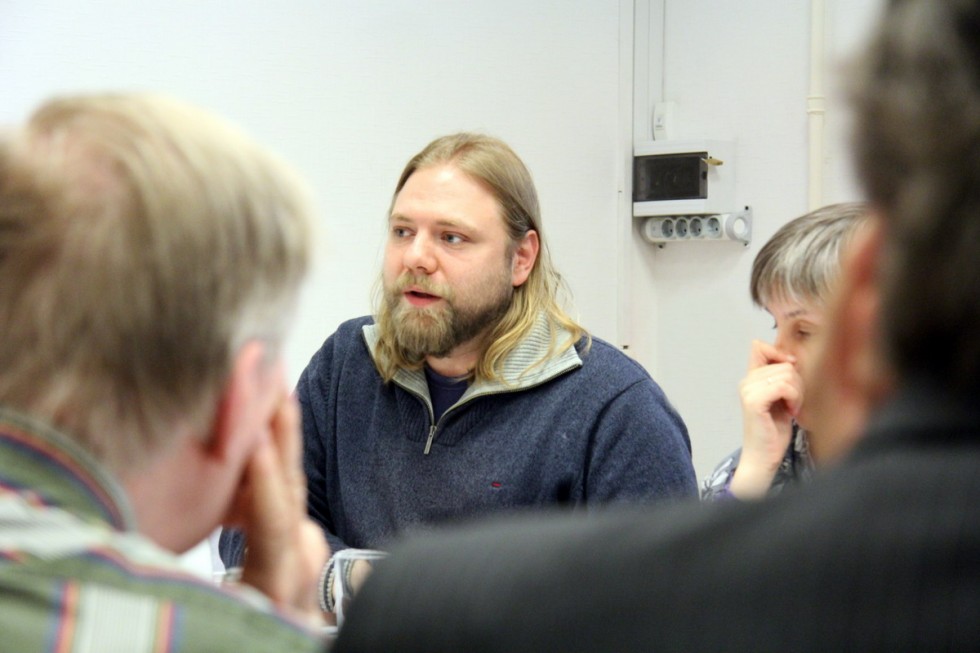
Ivan Negreyev, Head of the Department of Religious Studies at St John’s Russian Orthodox University
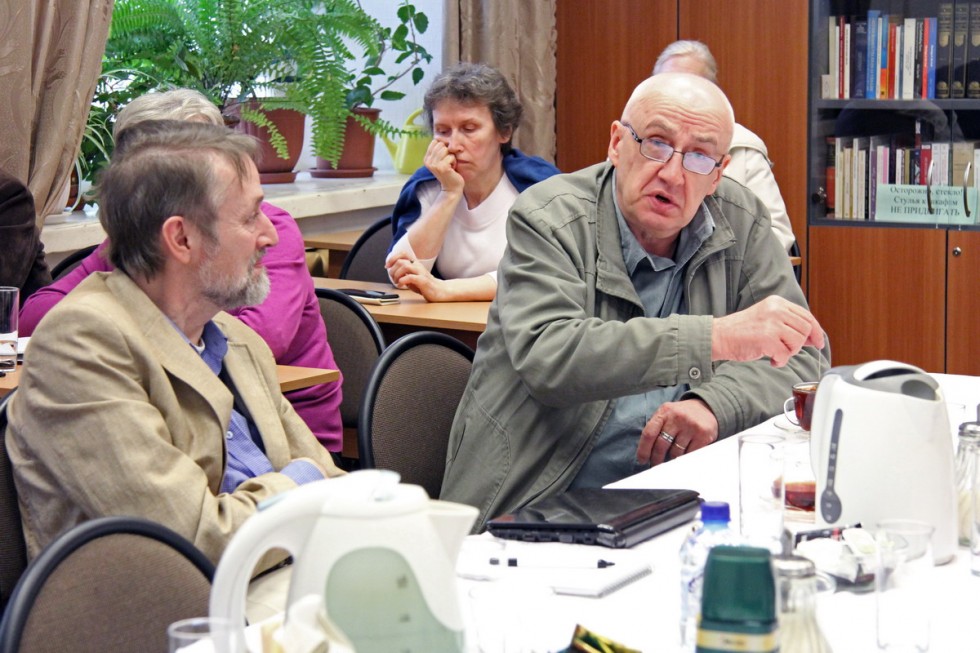
Alexey Zhuravsky, PhD in History, Associate Professor at St Philaret’s Institute and at the Institute of Oriental Cultures and Antiquity at the Russian State University for the Humanities; Andrey Ignatiyev, PhD in Sociology (Russian State University for the Humanities/St Philaret’s Institute)
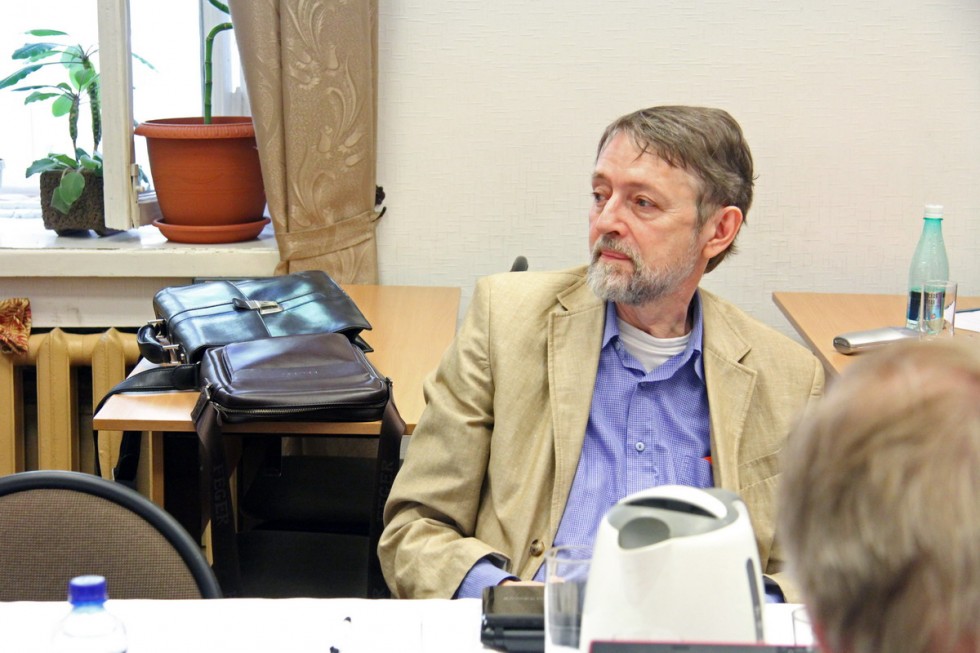
Alexey Zhuravsky, specialist on Islam
